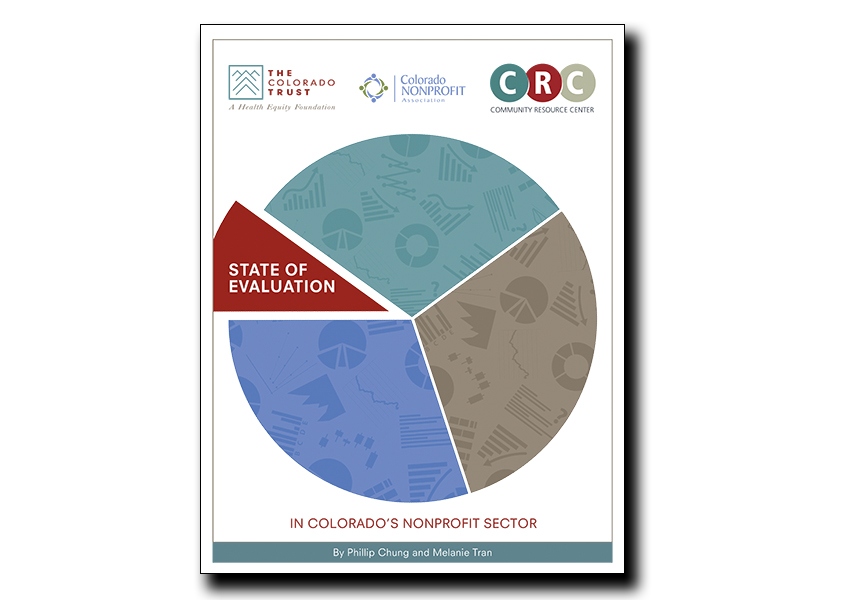Evaluating Evaluation

By Nancy Baughman Csuti
Evaluation. Does just reading the word make you tense up? Do you dread even the thought of it? Do you think every nonprofit and funder would avoid it if possible?
That might be conventional thought, but it’s not what we discovered in State of Evaluation in Colorado’s Nonprofit Sector, a new report by Phillip Chung and Melanie Tran written for The Colorado Trust, Community Resource Center and Colorado Nonprofit Association. Over 900 organizations responded to a survey sent out to 10,000 nonprofits to assess evaluation in Colorado.
To the surprise of many, over 85 percent of the responding organizations reported conducting some type of evaluation. There are many reasons why an organization might conduct evaluation: to assess impact, improve strategies and programs, and assure accountability to funders, clients and other stakeholders, to name a few. All these reasons and more surfaced in this report.
Modeled after a similar national survey conducted by Innovation Network, the Colorado survey included questions specifically addressing learning from evaluation. Learning about what works (and what doesn’t) are critical components of an evaluation. Understanding the “why,” and how to learn from the results, is essential for learning-focused evaluations. The majority of respondents knew a learning function was important, but were unsure they had the capacity to implement learning practices within their organizations.
There is much to be done to improve how evaluations are used and increase nonprofits’ capacity to use evaluation. Respondents provided numerous recommendations they believed would facilitate the process. Listening to the community of nonprofits and providing resources to enable them to systematically reflect on their work in an evaluative way is the challenge for funders. Only in doing so can the nonprofits in our state gain the needed capacity to conduct and learn from evaluations, and provide the most effective services to the people of Colorado.

